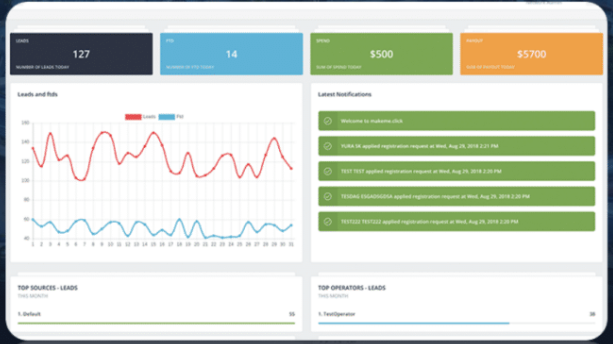Unleash Your Memory: The Magic of Flashcards Revealed
Memory is an extraordinary faculty, a fundamental aspect of human cognition that enables us to navigate the complexities of life, learn from our experiences, and store vast amounts of information. Despite its pivotal role, many people struggle with memory retention, especially in the context of learning new subjects or skills. Enter flashcards—a time-tested and highly effective tool for boosting memory and enhancing learning. This article delves into the magic of flashcards, exploring their historical origins, psychological principles, and modern applications, including digital tools like Anki.
The Historical Roots of Flashcards
The concept of flashcards is not new. It can be traced back to the 19th century when educators sought innovative methods to aid student learning. The simplicity and effectiveness of flashcards have ensured their enduring popularity over the years. Originally made from paper or cardboard, these cards typically feature a question or prompt on one side and the corresponding answer on the other. This format encourages active recall, a powerful memory-enhancing process where the brain is challenged to retrieve information rather than simply recognize it.
The Science Behind Flashcards
The efficacy of flashcards is rooted in several well-established psychological principles. Firstly, the act of creating flashcards involves encoding, where the learner processes and organizes information in a way that makes it easier to recall later. Secondly, using flashcards promotes active recall, which strengthens neural connections associated with the information. Additionally, spaced repetition, a technique where flashcards are reviewed at increasing intervals, significantly enhances long-term retention. This method leverages the spacing effect, which suggests that information is more likely to be remembered if exposure is spread out over time rather than crammed in a single session.
Modern Tools and Techniques
In the digital age, traditional paper flashcards have evolved into sophisticated software applications. Among these, tools like Anki have gained immense popularity for their efficiency and user-friendly features. Anki, which means “memorization” in Japanese, utilizes an algorithm to optimize spaced repetition, ensuring that learners review information just before they are likely to forget it. This adaptive learning approach makes Anki particularly effective for mastering complex subjects, from language vocabulary to medical terminology.
Anki: A Deeper Dive
Anki’s power lies in its customization and flexibility. Users can create decks of flashcards tailored to their specific learning needs, incorporating images, audio, and even video to enhance the learning experience. Anki also allows for the importation of pre-made decks, making it easy to get started with common subjects. Furthermore, the app’s syncing capabilities enable users to study across multiple devices, ensuring that learning can continue seamlessly regardless of location. The robust community of Anki users has also contributed to a wealth of shared resources, further enriching the tool’s value.
Cognitive Benefits of Flashcards
Flashcards do more than just help with rote memorization; they also engage multiple cognitive processes that enhance overall mental acuity. The process of formulating questions and answers fosters critical thinking and deepens understanding. Furthermore, the repetitive nature of flashcard study reinforces neural pathways, making recall faster and more automatic. This cognitive exercise can be particularly beneficial for older adults, helping to maintain and even improve memory function as part of a regular mental fitness routine.
Practical Applications
The versatility of flashcards extends to virtually any field of study or professional discipline. In education, they are a staple for students of all ages, aiding in the retention of key concepts and facts. In professional settings, flashcards can be used for training purposes, ensuring that employees grasp essential information and protocols. Language learners, in particular, find flashcards invaluable for building vocabulary and mastering grammar rules. The adaptability of flashcards means they can be tailored to any learning objective, making them a universal tool for knowledge acquisition.
Enhancing Flashcard Effectiveness
To maximize the benefits of flashcards, certain strategies can be employed. Firstly, it is essential to keep cards simple and focused on a single piece of information to avoid cognitive overload. Secondly, incorporating visuals can aid memory by engaging both verbal and visual memory pathways. Regular review sessions, adhering to the principles of spaced repetition, are crucial. Additionally, mixing up the order of flashcards can prevent the formation of contextual dependencies, ensuring that information is recalled independently of the sequence in which it was learned.
Overcoming Common Challenges
While flashcards are an effective learning tool, they are not without their challenges. One common issue is the tendency to over-rely on recognition rather than active recall. To counter this, learners should consciously try to recall the answer before flipping the card. Another challenge is maintaining motivation and consistency in studying. Setting specific goals, tracking progress, and using digital tools that provide reminders and statistics can help sustain engagement over the long term. Moreover, joining study groups or finding a study partner can add a social dimension to flashcard use, making the process more enjoyable and accountable.
Future Directions
The future of flashcards is likely to see continued integration with advanced technologies. Artificial intelligence and machine learning can further enhance the customization and effectiveness of flashcard applications. For instance, adaptive algorithms could provide even more personalized study schedules based on individual performance and learning styles. Virtual and augmented reality might also play a role, offering immersive environments where learners can interact with 3D flashcards in novel and engaging ways. As educational technology continues to evolve, the fundamental principles that make flashcards effective are poised to be enhanced and expanded upon.
Conclusion
Flashcards remain a timeless and versatile tool for enhancing memory and learning. From their historical roots to modern digital applications like Anki, they continue to adapt and thrive in various educational and professional contexts. By leveraging psychological principles such as active recall and spaced repetition, flashcards help learners retain information more effectively and efficiently. Whether you are a student, a professional, or simply someone looking to keep your memory sharp, incorporating flashcards into your study routine can unlock new levels of cognitive performance. As technology advances, the magic of flashcards is set to become even more potent, ensuring their relevance for generations to come.



